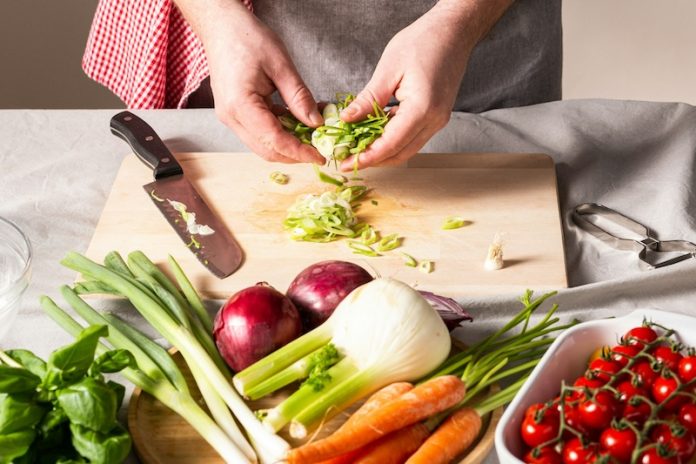
A recent study from the University of Bonn found that an extract from red onion skin could help reduce high blood pressure in overweight and obese individuals. The key component of this extract is quercetin, a plant flavonol belonging to the flavonoid group of polyphenols.
Quercetin is found in various fruits, vegetables, leaves, seeds, and grains, with notable amounts in capers, red onions, and kale. It has a bitter flavor and is commonly used in dietary supplements, beverages, and foods.
Previous research has suggested that quercetin may help prevent heart disease due to its ability to lower blood pressure. In this study, researchers examined the effects of quercetin on blood pressure in overweight-to-obese patients with pre-hypertension and stage I high blood pressure.
The study involved 70 participants who were given either 162 mg of quercetin from onion skin extract powder or a placebo over six weeks.
Both ambulatory blood pressure (ABP) and office blood pressure were measured before and after the intervention.
The results showed that quercetin significantly reduced systolic blood pressure by 3.6 mmHg over 24 hours compared to the placebo in the high blood pressure group. Additionally, quercetin substantially lowered both daytime and nighttime systolic blood pressure in these individuals.
Interestingly, while quercetin effectively reduced blood pressure, it did not affect other blood pressure-related biomarkers, oxidation, inflammation, lipid levels, or glucose metabolism in either the overall group or the subgroup with high blood pressure.
The study concludes that daily supplementation with 162 mg of quercetin from onion skin extract can lower blood pressure, indicating a heart-protective effect of quercetin.
This finding is particularly significant for individuals struggling with high blood pressure, as it suggests a potential natural remedy to help manage this condition.
For those concerned about high blood pressure, other studies have indicated that drinking tea and taking herbal supplements could also help lower blood pressure.
Additionally, recent research links added sugar in the diet to higher blood pressure and shows that vitamin D may improve blood pressure in people with diabetes.
This research, led by Verena Brüll and her team, was published in the British Journal of Nutrition. The findings underscore the potential benefits of natural compounds like quercetin in managing and reducing high blood pressure.
If you care about high blood pressure, please read studies that early time-restricted eating could help improve blood pressure, and natural coconut sugar could help reduce blood pressure and artery stiffness.
For more information about blood pressure, please see recent studies about added sugar in your diet linked to higher blood pressure, and results showing vitamin D could improve blood pressure in people with diabetes.
Copyright © 2024 Knowridge Science Report. All rights reserved.



